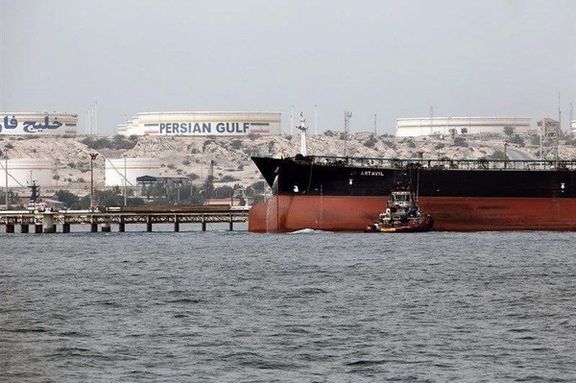Oil Prices After Invasion May Not Influence Iran Nuclear Talks

After the Russian invasion of Ukraine began some analysts said oil can hit $130 a barrel and Iran's supplies will be needed, but prices pulled back on Friday.

After the Russian invasion of Ukraine began some analysts said oil can hit $130 a barrel and Iran's supplies will be needed, but prices pulled back on Friday.
Bloomberg quoted Rystad Energy Chief Executive Jarand Rystad as saying that the conflict could jeopardize one million barrels of crude that flows through Ukraine and the Black Sea, but “long-term disruptions could be far more significant.”
Adi Imsirovic, a Senior Research Fellow at the Oxford Institute for Energy Studies and former oil trader, said in a report published by Reuters that he is surprised the price has not jumped to $130 per barrel already. One reason could be that simmering tensions for the past months already contributed up to $10 a barrel to recent price increases.
But on Friday prices that had spiked above $100 a barrel retreated, signaling some reassurance that the West does not intent to sanction Russian energy supplies. Half of Russia’s crude oil exports, 2.3 million barrels a day go to the West.
Russia supplies ten percent of the world’s oil and is the second largest natural gas producer after the United States. Europe depends on Russia for close to 40 percent of its natural gas consumption.
President Joe Biden signaled on Thursday that he may release more supplies from strategic reserves in coordination with other countries, to address any shortfalls.
Analysts also raise the possibility of a nuclear agreement between Iran and the United States that could end Washington’s oil export sanctions on Tehran and help control prices. But Iran has little extra capacity, which is already not being utilized and exported. However, Imsirovic noted that Tehran has stockpiled 80 million barrels on tankers at sea that could be an immediate partial help.
An agreement between the US and Iran, however, remains uncertain as signals indicate Tehran insists on its tough conditions and US says “serious issues” remain unresolved. Statements by Iranian officials have not signaled of a softening of their position. Tehran still demands more US sanctions to be lifted and on Friday its nuclear chief said the country will continue to enrich uranium at 20 percent, even if sanctions are lifted.
It is not clear if Washington will make more concessions at this point, although the need to increase oil supplies looms large when the United States is confronting rising inflation.
Saudi Arabia and other Middle East producers could try to increase output too. Analysts are not sure whether low production by the Saudis is intentional or the result of technical limitations. The kingdom reduced output in 2020 when demand slumped with the pandemic. Some say that it is not easy to revive reduced production. But if Riyadh is holding back production that could also be related to Iran.
Saudi Arabia is not thrilled by the Biden Administration’s attempts to reach a nuclear deal with Iran, which many see as a weak arrangement that would not prevent Tehran from getting close to producing nuclear weapons. Many regional countries see the specter of a nuclear Iran as a serious threat to their security.
There is also the issue of Tehran’s support for Yemen’s Houthi rebels that fight a Saudi-led coalition that intervened in the country to support the internationally recognized government.